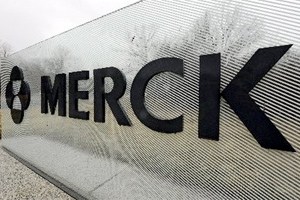 Merck & Co has reported two important pieces of news that could lend momentum to its PD-1 inhibitor Keytruda as it vies for market share with rival Opdivo from Bristol-Myers Squibb.
Merck & Co has reported two important pieces of news that could lend momentum to its PD-1 inhibitor Keytruda as it vies for market share with rival Opdivo from Bristol-Myers Squibb.
In the last few days, Keytruda (pembrolizumab) has become the first drug in its class to secure FDA approval as a first-line therapy for malignant melanoma, regardless of BRAF status, and has also shown impressive survival data compared to chemotherapy in lung cancer.
The first-line approval in melanoma gives the drug an edge over Opdivo (nivolumab), which was approved by the US regulator in November for use only in previously-untreated melanoma patients with BRAF wild-type tumours. BMS also filed for approval of BRAF V600-positive melanoma but had its application turned down by the FDA with a request for more data.
The frontline approval is based on a substantial improvement in progression-free (PFS) and overall survival (OS) compared with BMS’ older immuno-oncology drug Yervoy (ipilimumab) in the phase III KEYNOTE-006 trial.
The FDA has also updated the label for Keytruda to include the treatment of patients with Yervoy-refractory melanoma on the strength of another trial – KEYNOTE-002 – which found a 43% reduction in the risk of death compared to chemotherapy in this indication.
Survival data in PD-L1-positive NSCLC
Meanwhile, Keytruda significantly improved overall survival (OS) in the KEYNOTE-010 trial, becoming the first cancer immunotherapy to best chemotherapy on this measure in patients whose tumours express the PD-L1 protein.
The results reveal that two doses of the antibody – the approved 2 mg/kg dose and an investigational 10 mg/kg dose – improved median survival in PD-L1-positive patients by 29% compared with docetaxel. The benefit was even greater in the group of patients with PD-L1 staining in more than 50% of tumour cells.
Among the patients with high PD-L1 expression, the lower dose of Keytruda was associated with an OS of 14.9 months, compared to just over eight months with docetaxel. Raising the dose to 10 mg/kg extended OS to more than 17 months.
The FDA granted accelerated approval to Keytruda for previously-treated patients with NSCLC whose tumours show 50% or more PD-L1 expression in October, and the new data suggests its label could be updated to support more widespread use.
Merck – which is known as MSD outside the US – said it would file for approval of new labelling for Keytruda based on the data in the US and Europe in the coming weeks.
Opdivo brought in $305m to BMS’ revenues in the third-quarter, ahead of Keytruda’s $160m, with year-to-date sales for the two drugs at $467m and $352m respectively.




